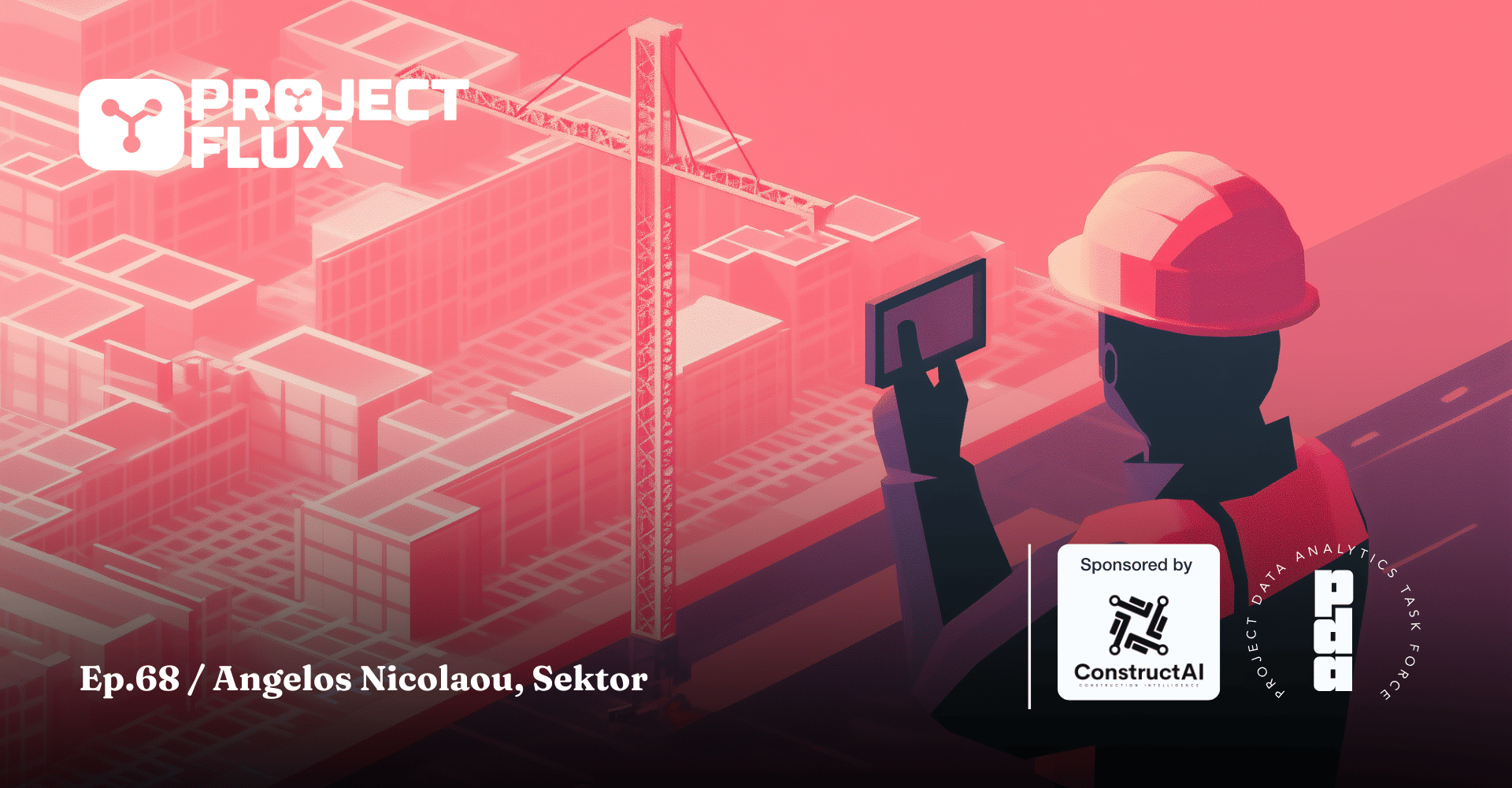
Proudly sponsored by ConstructAI, brought to you by Weston Analytics.
Morning Project AI enthusiasts,
This week has been absolutely electric for AI development. From Trump's ambitious AI action plan targeting China to Meta's eye-watering investment in superintelligence, we're witnessing the emergence of a new competitive landscape that demands our immediate attention. The convergence of geopolitical strategy, technological breakthroughs, and corporate warfare is creating unprecedented opportunities—and risks—for project professionals who understand how to navigate this rapidly evolving terrain.
In this edition: We explore the implications of America's new AI strategy, Meta's billion-dollar bet on the future, the looming voice fraud crisis, and mathematical AI achievements that could revolutionise problem-solving.
In This Edition
Flux check-in

President Trump's administration has unveiled an ambitious 28-page AI Action Plan that positions America squarely against China in the global AI race. Developed by AI and crypto czar David Sacks, this comprehensive strategy outlines over 90 federal recommendations focused on expanding AI infrastructure, boosting private-sector innovation, and establishing American AI dominance worldwide. However, the plan's execution faces significant headwinds, particularly with the troubled Stargate project experiencing internal disputes and scaled-back ambitions. Read the full breakdown →
What Does This Mean for Me? Project delivery teams must prepare for a rapidly shifting regulatory landscape where AI governance becomes a competitive advantage, not just a compliance requirement.
Key Themes: • Export controls targeting Chinese AI development • Massive infrastructure investments creating new opportunities • Regulatory barriers being systematically removed • Geopolitical tensions reshaping technology partnerships
Down the Rabbit Hole: • Trump Administration AI Action Plan - White House • Stargate Project Mixed Signals • TechCrunch Analysis

Meta is making the boldest bet in AI history, committing to invest "hundreds of billions" in massive AI data centres whilst offering unprecedented $300 million four-year compensation packages to poach elite researchers from OpenAI. This aggressive strategy represents Mark Zuckerberg's vision for personal superintelligence, but it comes with a potentially devastating trade-off: the company may abandon its open-source approach to fund these sky-high costs. Read the full breakdown →
What Does This Mean for Me? The democratisation of AI tools may be ending as companies prioritise proprietary advantages over open innovation, forcing project teams to reassess their technology strategies.
Key Themes: • Unprecedented talent acquisition warfare in AI • Open-source model sustainability under threat • Infrastructure investments reshaping competitive landscape • Personal AI assistants becoming reality
Down the Rabbit Hole: • Reuters: Meta's Billions Investment • WIRED: $300M AI Talent Packages • CNN: Meta's AI Hiring Spree
Together with Cogram
Power your construction bids with AI

Cogram’s AI-assisted RFP bidding tool writes tailored RFP proposals in minutes instead of weeks.
Automatically extract key details from the RFP — including scope, submission requirements, deadlines, and evaluation criteria — to easily make a go/no-go decision.
Cogram’s AI will then reference your firm’s knowledge base and past proposals to draft tailored proposals within minutes.
Use AI-assisted editing tools to review, cross-check data, and make improvements remarkably fast.

OpenAI CEO Sam Altman has issued a stark warning to the financial industry about an "impending fraud crisis" driven by AI voice synthesis technology. As AI becomes capable of perfectly mimicking any voice with just seconds of audio, traditional voice-based authentication systems are becoming obsolete overnight. This isn't just a banking problem—it's a fundamental security challenge that will impact every project involving voice communications, approvals, or verification processes. Read the full breakdown →
What Does This Mean for Me? Project managers must immediately audit their approval processes and communication protocols to identify vulnerabilities to voice-based fraud attacks.
Key Themes: • Voice authentication systems becoming obsolete • New verification protocols urgently needed • Financial services facing immediate threats • Project approval processes require security overhaul
Down the Rabbit Hole: • CNN: Altman's Fraud Crisis Warning • AP News: Banking Industry Alert • Fortune: Financial Industry Impact

Both OpenAI and Google DeepMind have achieved gold-level performance on the International Mathematical Olympiad (IMO) 2025, marking a historic milestone in AI capabilities. OpenAI's experimental model solved 5 out of 6 problems, scoring 35/42 points, whilst DeepMind's enhanced Gemini Deep Think also earned gold by solving five problems perfectly. This breakthrough represents more than academic achievement—it signals the arrival of AI systems capable of complex reasoning that could fundamentally transform how we approach project problem-solving and risk analysis. Read the full breakdown →
What Does This Mean for Me? Project delivery teams now have access to mathematical reasoning capabilities that exceed human performance, opening new possibilities for optimisation and risk modelling.
Key Themes: • Mathematical reasoning surpassing human capability • Complex problem-solving becoming automated • Project optimisation reaching new levels • Risk analysis and modelling transformation
Down the Rabbit Hole: • The Rundown: IMO Gold Achievement • YouTube: AI Safety Researchers Warning • X: Joint AI Safety Warning

OpenAI is preparing to launch GPT-5 in August, marking the most significant AI model release since ChatGPT's debut. Simultaneously, the UK government has signed a strategic partnership with OpenAI, positioning Britain as a key testing ground for advanced AI applications in public sector project delivery. This convergence of technological advancement and governmental adoption signals a new era where AI becomes integral to national infrastructure projects and public service delivery. Read the full breakdown →
What Does This Mean for Me? Government adoption of advanced AI tools will create new standards and expectations for project delivery across all sectors.
Key Themes: • Next-generation AI capabilities arriving imminently • Government partnerships legitimising AI adoption • Public sector becoming AI innovation testbed • New standards emerging for project delivery
Down the Rabbit Hole: • The Verge: GPT-5 August Launch • UK Government Partnership • Reddit: OpenAI UK Deal Discussion
The pulse check
Tips of the week
As project delivery professionals, we're witnessing the emergence of agentic AI across three distinct horizons that will reshape how we approach our work. The first horizon involves enhancing existing processes—these are the "low-hanging fruit" opportunities where agents can automate or augment current business operations. Whilst these might seem less exciting, they often provide the quickest path to value and the easiest entry point into the market.
The second horizon involves reimagining existing services through an agent-first lens. This is where agents truly shine, orchestrating complex workflows to deliver traditional services in radically new ways. Think of it as taking an existing need and completely reimagining it through the capabilities of agentic AI—transforming not just how we do things, but what becomes possible.
The third horizon is perhaps the most exciting: entirely new categories of products and services that weren't possible before agentic AI. These opportunities typically emerge at the intersection of multiple trends and technologies. Whilst these can offer the biggest potential returns, they also carry the highest risk and require the deepest understanding of the technology's capabilities and limitations. For project managers, understanding which horizon your AI initiatives fall into will help you set appropriate expectations, allocate resources effectively, and measure success accurately.
Source: How to Measure the ROI of AI
Robotics
Figure Teases New Humanoid Robot — Figure has teased a new humanoid robot, adding to growing competition in deployable robotics.
Chinese Humanoid Companies Prepare for IPO — Chinese humanoid robotics leaders are preparing for public offerings, indicating growing investor confidence in the sector.
Hexagon's AEON Industrial Humanoid — Hexagon has entered the humanoid robotics space with AEON, featuring wheel-based locomotion and self-swapping battery capability.
Governance & Security
The AI governance landscape is experiencing unprecedented turbulence as geopolitical tensions intersect with technological advancement. A shadow industry of repair shops has emerged in China to service smuggled Nvidia AI chips, with around a dozen boutique companies reportedly fixing contraband H100 and A100 GPUs for up to $2,800 per repair. This follows reports that at least $1 billion worth of Nvidia chips have found their way into China despite export controls, highlighting the limitations of current enforcement mechanisms.
Simultaneously, the US Department of Defense has awarded contracts worth up to $200 million to major AI companies including Anthropic, Google, OpenAI, and xAI, demonstrating significant government investment in AI capabilities for national security applications. This military-industrial AI complex is forming just as regulatory frameworks struggle to keep pace.
Adding to the complexity, Meta has refused to sign the EU's new voluntary Code of Practice designed to help tech companies comply with EU AI laws. The code includes safety guidelines, copyright protections, and transparency requirements, with legal protection for companies that sign it if accused of violating AI laws. Meta's rejection signals growing resistance to regulatory oversight, potentially fragmenting global AI governance efforts. For project managers, this regulatory patchwork creates compliance challenges that require careful navigation across different jurisdictions and stakeholder expectations.
Trending tools and Model Updates
Amazon's AI Agent Suite — Amazon has released a comprehensive suite of tools and services for building AI agents, expanding the ecosystem of agent development platforms and making autonomous AI systems accessible to more developers.
Google's Web Guide — Google has launched Web Guide, a Search Labs feature that uses Gemini to provide comprehensive guides and explanations for web searches, enhancing research capabilities with AI-powered insights.
Higgsfield AI's "Steal" Tool — This browser extension lets users 'steal' any visual style from across the web and apply it to AI-generated characters, analysing reference images to recreate exact lighting, composition, and aesthetic.
Model Updates
Cursor Launches Bugbot — Cursor has launched Bugbot, an automated code review tool that catches bugs and security vulnerabilities in pull requests before they reach production, with early users reporting over 50% resolution rates.
Microsoft's Phi-4-Mini-Flash-Reasoning — Microsoft introduced Phi-4-mini-flash-reasoning, a compact AI model that delivers responses 10 times faster with 2-3 times average reduction in latency, built on innovative hybrid architecture.
Claude Memory Feature Testing — Anthropic is testing a memory and recall capability upgrade for Claude's mobile experience, enabling the AI to retain information across sessions and reference earlier conversations.
Other things we’re loving
Walmart accelerates AI adoption across operations, representing the retail giant's commitment to leveraging artificial intelligence for improved efficiency and customer experience.
Google's Veo 3 video generation model is now available via API, allowing developers to integrate powerful video generation tools at $6 per 8-second video.
Cognition acquires Windsurf after Google poached key talent, consolidating resources in the competitive AI coding space.
xAI plans $12 billion fundraise for a new data centre called "Colossus 2," representing massive investment in AI infrastructure competition.
Microsoft recruits two dozen AI researchers from Google DeepMind, representing significant talent acquisition in the ongoing competition for top AI talent.
Amazon acquires Bee, an AI wearable startup known for its $50 listening device, expanding Amazon's presence in wearable technology.
The Grok app now features AI companions, including an anime goth girl character, expanding xAI's entertainment-focused AI interactions.
Elon Musk announces "Baby Grok", presumably a smaller version of the Grok AI model, expanding xAI's offerings and accessibility.
Human-centric integrated AI modernises building management, transforming how we approach smart building systems and operational efficiency.
Anthropic research reveals AI models get worse with longer thinking time, challenging assumptions about AI reasoning processes.
McKinsey's Technology Trends Outlook 2025 provides 100-page analysis of 13 technology trends shaping the future business landscape.
Construction professionals leaving takes wisdom, highlighting the critical knowledge transfer challenges facing the construction industry.
Construction sector AI adoption discussion questions whether the industry is truly behind the curve in artificial intelligence implementation.
Community
The Spotlight Podcast
80% of Your Work Is Grunt Work—Let AI Handle It with Angelos Nicolaou of Sektor.

IIn this wide-ranging discussion, Angelos Nicolaou shares insights on the future of AI, automation, and change management in construction and tech industries. He stresses the importance of making technology work for users—not the other way around—and calls for reducing "grunt work" to unlock human creativity. The conversation touches on agentic AI, the evolving SaaS landscape, challenges with innovation adoption, and how business development and project teams can better collaborate. A major theme is adoption and integration over buzzwords—real results, not claims.
Listen now
One more thing
A humanoid robot has painted a portrait of King Charles, and the results are surprisingly impressive. This artistic achievement represents more than novelty—it signals AI's expanding creative capabilities beyond traditional analytical tasks. As we navigate the complex landscape of AI governance, talent wars, and technological breakthroughs, perhaps there's something reassuring about artificial intelligence creating art that celebrates human leadership and tradition.

That’s it for today!
Before you go we’d love to know what you thought of today's newsletter to help us improve The Project Flux experience for you.
See you soon,
James, Yoshi and Aaron—Project Flux

